Anmol Chemicals is the pioneer manufacturers of Sodium Acetate Trihydrate Anhydrous and Sodium Diacetate, Pharmaceutical Excipients Fragrance Food & Flavor chemicals in India. We supply Halal and Kosher Sodium Acetate Trihydrate Anhydrous and Sodium Diacetate made in an ISO9001, ISO22000 (FSSC22000) cGMP and GLP certified facility. Our grouphas several manufacturing facilities spread across the world, supported bytoll manufacturers andrepresentatives in UAE, Europe, USA,China and has several associated manufacturing facilities spread across India. All the Information on Physics, Chemistry, Applications, Uses and Technology on Manufacture of Sodium Acetate Trihydrate Anhydrous and Sodium Diacetate is in these pages. |
| The units have one or more of the certifications like FDA GMP, ISO 9001, ISO 22000, HACCP, REACH, Kosher & Halal |
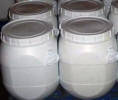
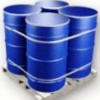
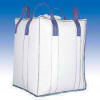

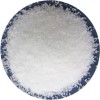
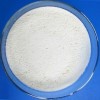
Sodium Acetate Trihydrate Anhydrous BP Ph Eur USP IP Analytical Reagent FCC Food Grade and Sodium Diacetate Food Grade Manufacturers
Sodium Acetate Anhydrous CAS Number 127-09-3, Sodium Acetate Trihydrate CAS Number 6131-90-4
Sodium Diacetate CAS Number 126-96-5
Sodium Acetate USP Specifications
C2H3NaO2-3H2O - 136.08
Assay: Sodium Acetate contains three molecules of water of hydration, or is anhydrous. It contains not less than 99.0 percent and not more than 101.0 percent of C2H3NaO2, calculated on the dried basis.
Identification: A solution responds to the test for Sodium and for Acetate.
pH: between 7.5 and 9.2, in a solution in carbon dioxide-free water containing the equivalent of 30 mg of anhydrous sodium acetate per mL.
Loss on drying: Dry at 120 to constant weight: the hydrous form loses between 38.0% and 41.0% of its weight, and the anhydrous form loses not more than 1.0% of its weight.
Insoluble matter: Dissolve the equivalent of 20 g of anhydrous sodium acetate in 150 mL of water, heat to boiling, and digest in a covered beaker on a steam bath for 1 hour. Filter through a tarred filtering crucible, wash thoroughly, and dry at 105 : the weight of the residue does not exceed 10 mg (0.05%).
Chloride: A portion equivalent to 1.0 g of anhydrous sodium acetate shows no more chloride than corresponds to 0.50 mL of 0.020 N hydrochloric acid (0.035%).
Sulfate: A portion equivalent to 10 g of anhydrous sodium acetate shows no more sulfate than corresponds to 0.50 mL of 0.020 N sulfuric acid (0.005%).
Calcium and magnesium: To 20 mL of a solution containing the equivalent of 10 mg of anhydrous sodium acetate per mL add 2 mL each of 6 N ammonium hydroxide, ammonium oxalate TS, and dibasic sodium phosphate TS: no turbidity is produced within 5 minutes.
Potassium: Dissolve the equivalent of 3 g of anhydrous sodium acetate in 5 mL of water, add 1N acetic acid drop wise until the solution is slightly acidic, and then add 5 drops of sodium cobalt nitrite TS: no precipitate is formed.
Aluminum: (where it is labeled as intended for use in hem dialysis)— the limit is 0.2µ =g per g.
Heavy metals: the limit is 0.001%.
Organic volatile impurities: meets the requirements.
Sodium Acetate Trihydrate BP Ph Eur Specifications
C2H3NaO2-3H2O
Action and use
Used in solutions for dialysis; excipient.
DEFINITION
Sodium ethanoate trihydrate.
Content: 99.0 per cent to 101.0 per cent (dried substance).
CHARACTERS
Appearance: Colourless crystals.
Solubility: Very soluble in water, soluble in ethanol (96 per cent).
IDENTIFICATION
A. 1 ml of solution S (see Tests) gives reaction (b) of acetates.
B. 1 ml of solution S gives reaction (a) of sodium.
C. Loss on drying (As shown in the Relevant Test).
TESTS
Solution S: 10.0 g in carbon dioxide-free water prepared from distilled water R and dilute to 100 ml 100 ml with the same solvent.
Appearance of solution: Solution S is clear and colourless.
pH: 7.5 to 9.0.
Dilute 5 ml of solution S to 10 ml with carbon dioxide-free water.
Reducing substances: Dissolve 5.0 g in 50 ml of water, then add 5 ml of dilute sulphuric acid and 0.5 ml of 0.002 M potassium permanganate. The pink colour persists for at least 1 h. Prepare a blank in the same manner but without the substance to be examined.
Chlorides: Maximum 200 ppm.
Sulphates: Maximum 200 ppm.
Aluminium: Maximum 0.2 ppm, if intended for use in the manufacture of dialysis solutions.
Arsenic: Maximum 2 ppm, determined on 0.5 g.
Calcium and magnesium: Maximum 50 ppm, calculated as Ca.
Heavy metals: Maximum 10 ppm.
Iron: Maximum 10 ppm, determined on 10 ml of solution S.
Loss on drying: 39.0 per cent to 40.5 per cent, determined on 1.000 g by drying in an oven at 130C.
Sodium Acetate FCC Food Grade
C2H3NaO2 Formula weight, anhydrous 82.03
C2H3NaO2-3H2O Formula weight, trihydrate 136.08
DESCRIPTION
Sodium Acetate occurs as colorless, transparent crystals or as a granular, crystalline or white powder. The anhydrous form is hygroscopic; the trihydrate effloresces in warm, dry air. One gram of the anhydrous form dissolves in about 2 mL of water; 1 g of the trihydrate dissolves in about 0.8 mL of water and in about 19 mL of alcohol.
Function: Buffer.
REQUIREMENTS
Identification: A 1:20 aqueous solution gives positive tests for Sodium and for Acetate.
Assay: Not less than 99.0% and not more than 101.0% of C2H3NaO2 after drying.
Alkalinity Anhydrous: Not more than 0.2%; Trihydrate: Not more than 0.05%.
Lead: Not more than 2 mg/kg.
Loss on Drying: Anhydrous: Not more than 1.0%; Trihydrate: Between 36.0% and 41.0%.
Potassium Compounds: Passes test.
Sodium Acetate Anhydrous Analytical Reagent Specifications
CH3COONa
Formula Wt 82.03
CAS Number 127-09-3
REQUIREMENTS
Assay: 99.0% C2H3O2Na
pH of a 5% solution: 7.0-9.2 at 25C
MAXIMUM ALLOWABLE
Insoluble matter: 0.01%
Loss on drying at 120C: 1.0%
Chloride (Cl): 0.002%
Phosphate (PO4): 0.001%
Sulfate (SO4): 0.003%
Calcium (Ca): 0.005%
Magnesium (Mg): 0.002%
Heavy metals (as Pb): 0.001%
Iron (Fe): 0.001%
Sodium Acetate Trihydrate Analytical Reagent Specifications
NaC2H3O2-3H2O
Formula Wt 136.08
CAS Number 6131-90-4
REQUIREMENTS
Assay: 99.0-101% NaC2H3O2 . 3H2O
pH of a 5% solution: 7.5-9.2 at 25C
Substances reducing permanganate: Passes test
MAXIMUM ALLOWABLE
Insoluble matter: 0.005%
Chloride (Cl): 0.001%
Phosphate (PO4): 5 ppm
Sulfate (SO4): 0.002%
Heavy metals (as Pb): 5 ppm
Iron (Fe): 5 ppm
Calcium (Ca): 0.005%
Magnesium (Mg): 0.002%
Potassium (K): 0.005%.
Sodium Diacetate FCC Food Grade Specifications:
Sodium Hydrogen Diacetate
CH3COONa-CH3COOH-xH2O
C4H7NaO4-xH2O Formula wt, anhydrous 142.09
NS: 262 CAS Number 126-96-5
DESCRIPTION
Sodium Diacetate occurs as a white, hygroscopic, crystalline solid. It is a molecular compound of sodium acetate and acetic acid. One gram is soluble in about 1 mL of water. The pH of a 1:10 aqueous solution is between 4.5 and 5.0.
Function: Sequestrant; preservative; antimicrobial agent; mold inhibitor.
REQUIREMENTS
Identification: A 1:10 aqueous solution gives positive tests for Acetate and for Sodium.
Assay: Not less than 39.0% and not more than 41.0% of free acetic acid (CH3COOH), and not less than 58.0% and not more than 60.0% of sodium acetate (CH3COONa), calculated on the anhydrous basis.
Lead: Not more than 2 mg/kg.
Readily Oxidizable Substances (as formic acid): Not more than 0.2%.
Water: Not more than 2.0%.
Sodium Acetate Trihydrate Anhydrous and Sodium Diacetate Manufacturers
Anmol Chemicals
S-8, SARIFA MANSION, 2ND FLANK ROAD, CHINCHBUNDER, MUMBAI 400009, INDIA
TEL: (OFFICE) 91-22-23770100, 23726950, 23774610, 23723564. FAX: 91-22-23728264
e-mail: ask(at the rate @)anmol.org

Exports to USA, Canada, UAE, Dubai, South Africa, Tanzania, Kenya, Nigeria, Egypt, Uganda, Turkey, Mexico, Brazil, Chile, Argentina, Europe Netherlands, Italy, Spain, Germany, Portugal, France, Malaysia, Indonesia, Thailand, Korea, Ukraine, Norway, Japan, etc.
Copyright and Usual Disclaimer is Applicable. 29 September, 2025